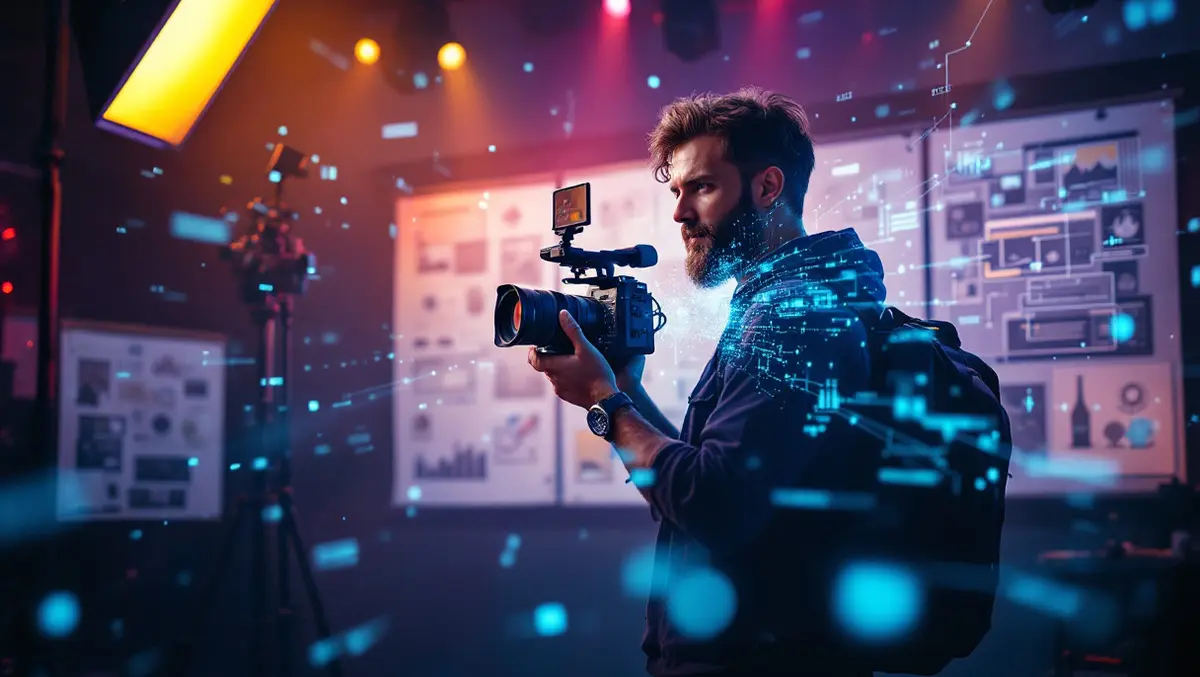
Google unveils Flow AI tool to empower filmmakers & storytellers
Google has introduced Flow, an AI filmmaking tool designed for use with its advanced AI models, including Veo, Imagen, and Gemini.
Flow is intended to assist storytellers and creatives in exploring cinematic ideas and creating clips and scenes using generative AI. According to Google, the platform allows filmmakers to move from concept to visuals with greater flexibility, supporting iterative creative workflows.
Google states that Flow has been custom-designed for Veo, the company's generative video model, which is described as capable of producing detailed cinematic outputs and adhering to prompts that emphasise physics and realism. The tool also incorporates Gemini AI models that enable users to interact using natural language, reducing the need to learn complex commands when describing shots or giving instructions.
Another feature within Flow is the integration with Imagen, Google's text-to-image model. Filmmakers can create or import characters and other assets, using Imagen to generate new visual elements as needed. These assets can then be used repeatedly across different scenes, allowing for consistent storytelling and streamlined production processes.
Flow provides a suite of key features for users at various levels of filmmaking experience. These include camera controls for directly adjusting shot composition, motion, and perspective. A Scenebuilder function enables users to extend and edit existing shots, while continuous motion and character consistency are maintained throughout the work. Asset management tools are also included to help organise media and prompts during the creative process.
Another aspect of the platform is Flow TV, a curated showcase of content generated using Veo. Users can review exact prompts and techniques applied in showcased clips, which Google states could help them learn and experiment with new creative styles based on practical examples.
Flow is positioned as an evolution of VideoFX, an earlier Google Labs experiment. The initial rollout is available to subscribers of the Google AI Pro and Google AI Ultra plans in the United States, with plans to make it available in additional countries in the future.
Google AI Pro offers subscribers access to the core Flow features and supports up to 100 content generations per month. Google AI Ultra, which is described as the higher-tier plan, allows for greater usage limits and early access to Veo 3. Veo 3 introduces native audio generation, enabling the addition of environmental sounds and character dialogue directly into AI-generated video content.
In developing Flow, Google engaged several filmmakers to trial the technology and provide feedback. Dave Clark, referred to as an award-winning filmmaker, used AI in the production of his short films "Battalion" and "NinjaPunk." His latest project, "Freelancers," used Google's AI alongside other tools and explores the story of two estranged adopted brothers on similar quests. Clark said, "Battalion" and "NinjaPunk" were developed using AI technology, demonstrating a commitment to incorporating new tools into the filmmaking process.
Henry Daubrez is also highlighted as an early adopter, using technology to inform his art for nearly two decades. Daubrez's project "Kitsune," made with Veo 2, is described as a short film exploring love between two separated souls, while his ongoing work, "Electric Pink," aims to depict his journey with creative technology. Google's overview sees Daubrez as part of a group using Flow and related AI models to expand the narrative and artistic possibilities of short filmmaking.
Film director and multidisciplinary creative Junie Lau is noted for her focus on innovation and the use of AI as a means of broadening creative boundaries. Lau's work addresses themes such as virtual identity, digital humanities, and digital ontology. Her current project, "Dear Stranger," investigates the concept of universal love through the story of a grandmother and grandchild connected across parallel worlds.
Google reflected on the ongoing development of AI-assisted filmmaking, stating, "AI is ushering in a new chapter of creativity and filmmaking, and while it's still early, we see so much potential for tools like Flow to unlock new voices and creations."


